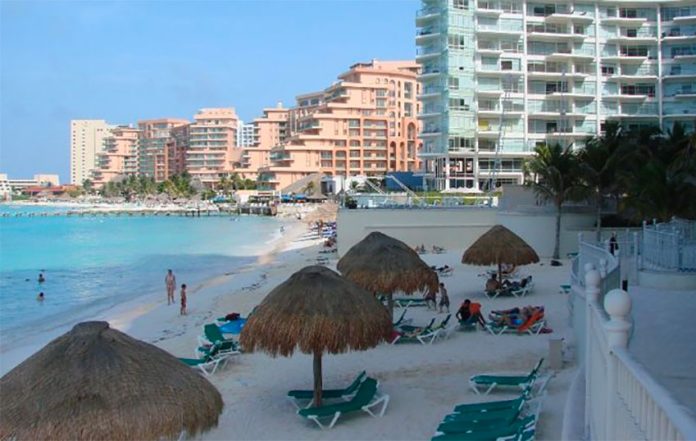The Cancún hotel zone doesn’t have the capacity to support new developments, according to the head of the National Tourism Promotion Fund (Fonatur).
Rogelio Jiménez Pons said that Fonatur has offered land to developers of two hotels in an attempt to persuade them to move their projects to other destinations because the Caribbean coast resort city is unable to provide the services that new rooms would require, such as water and drainage.
The two projects the tourism fund is trying to stop are the US $1-billion, 3,000-room Grand Island mega-hotel and the 500-room, US $95-million Riu Riviera Cancún, whose construction was halted in 2016 due to environmental concerns but subsequently got the green light to proceed.
President López Obrador and Tourism Secretary Miguel Torruco announced in October that the former project, approved by the Secretariat of the Environment last July, was going ahead.
However, Jiménez said that Fonatur has now offered land to the developers of the Grand Island and the Riviera Cancún in other destinations “where new hotel investment really is needed,” such as Huatulco, Oaxaca, and other resort cities that were developed by the tourism fund as planned projects.
They also include Ixtapa, Guerrero; Loreto, Baja California Sur; and Playa Espíritu, Sinaloa, which is currently under development.
Jiménez stressed that Fonatur doesn’t want to “frighten away” investment but explained that the fund is opposed to the “overexploitation” of destinations that are already “overburdened.”
“What could be considered today as a gain for the region in terms of investment will be a loss in the long run due to the strain on the environment,” he said.
The Fonatur chief also said that a letter will be sent to the government of Benito Juárez (the municipality where Cancún is located) to request that no new developments be approved in the hotel zone because it’s not possible to keep building the new urban infrastructure required to support them.
More than 6,000 rooms, including those planned at the Grand Island and the Riviera Cancún, are already in the pipeline for the Cancún hotel zone, which currently has more than 37,000 rooms.
Jiménez claimed that corruption has been a factor in the granting of many construction permits in Cancún that allowed the hotel zone to exceed its density by double or triple the original established limit.
“. . .we’re going to proceed with a lot of tact, consulting with the greatest number of authorities. . . the [federal] Secretariat of the Environment and Natural Resources and city councils. We’re going to try to provide solid arguments; the main thing is for original density [limits] to be respected,” he said.
The reason for limiting construction of new projects is simple, Jiménez added. “There is no longer capacity to provide these new complexes with the basic services. . . of drainage, potable water and roads.”
Source: El Economista (sp)
